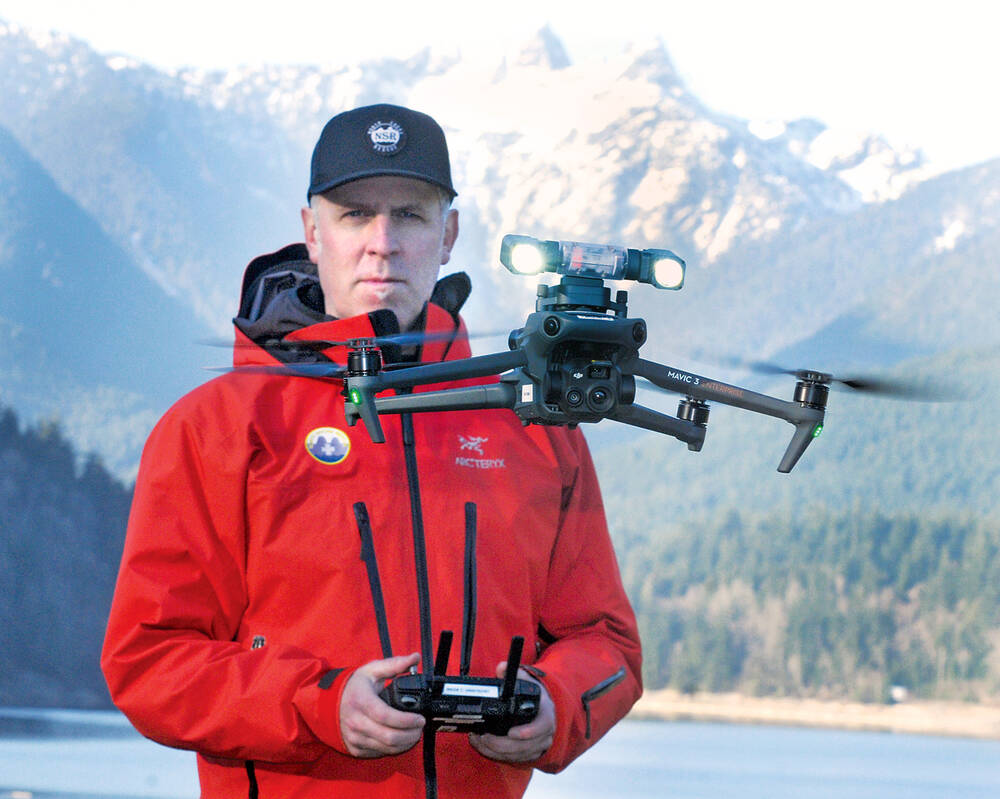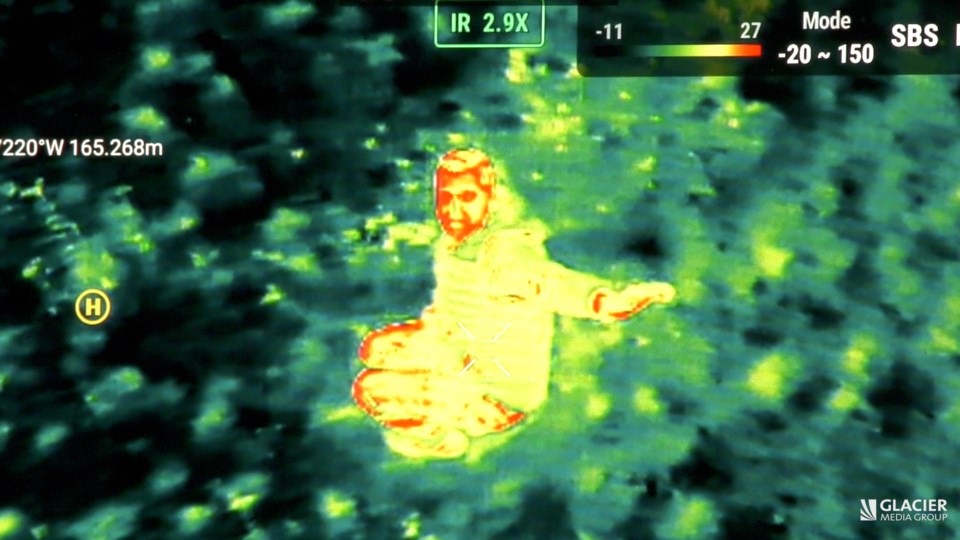Never send a human to do a robot’s job.
North Shore Rescue says that drones are increasingly becoming a critical tool for finding lost and injured people in the backcountry. There have been at least three times now a thermal camera-mounted drone spotted a rescue subject long before volunteers would have found them on foot.
In the winter of 2023, a hiking group returned to Mount Seymour with one member missing. Teams were out searching the area when they heard, albeit faintly, a voice deep down the mountainside.
“I just grid searched that area, until I finally, on my last battery, picked up a hot spot, and he got up out of the bushes and started waving at the camera,” said Grant Baldwin, North Shore Rescue’s first drone operator. “The subject was quite hypothermic. It was getting to the point where if they had not been found, it would probably be a recovery the next day. So that felt amazing to finally see that heat spot.”

The thermal camera picks up anything giving off heat. Baldwin can usually tell whether he’s looking at a human or something else.
“A rabbit really does look like a rabbit running through the woods,” he joked.
The operator can type in a message, which the drone will then broadcast via a loudspeaker, telling a subject stay put.
In June 2024, another volunteer took only about 15 seconds to spot a man who’d gone missing deep in Lynn Canyon.
Baldwin became a resource member of North Shore Rescue after first spending a year following the team and filming them with drones for Search and Rescue: North Shore, the Knowledge Network documentary series he directed.
The level of training and certification required to operate a drone is significant, Baldwin said, and the thermal-mounted camera drone he uses for searches costs about $20,000. But the team clearly sees value in drones, training up eight members for certification. And Emergency Management B.C. has recently given rescue teams some directions to follow when using them.

Although the thermal camera makes a lost subject pop out of the landscape in vivid colour, North Shore Rescue team leader Scott Merriman sees an even greater need for them: Drones rush in where angels fear to tread. Specifically, the many cliffs, canyons, drainages and avalanche terrain where it would be dangerous to send volunteers on foot, Merriman said.
“It’s really an important tool in our toolbox,” he said. “At the end of the day, it’s keeping our members safe and it’s the providing the best outcome for the public that we’re here to help.”
“Putting a drone out there instead of flying a helicopter in poor conditions is a really smart move. The drone is expendable,” Baldwin added.
But even as the tool makes the backcountry a bit safer, Baldwin stressed that rescuers need something to go on. That’s why it’s critical to let someone know where in the backcountry you’re going and when you’re expected back.
“Because if we don’t have a starting point, I don’t have 1,000 batteries to fly up and down every drainage to figure out where you are,” he said.
And, he added, anyone lucky enough to be found by a North Shore Rescue drone is still going to have to wait for the boots on the ground to get back out.
“A drone can find someone, but it’s not going to pick them up and get them out. You still need the field team to do most of the work,” he said.
This story was originally published as part of a Jan. 22 special print feature recognizing the work of the tireless volunteers of North Shore Rescue. You can see the entire feature as a digitial edition here.
[email protected]
twitter.com/brentrichter
brentrichter.bsky.social




